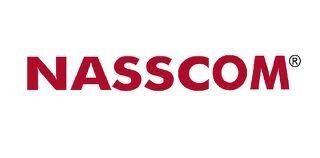 Bangalore, September 23, 2015: The National Association of Software and Services Companies (NASSCOM) in partnership with Everest Group today announced the key findings of a report titled “Seizing the Robotic Process Automation (RPA) Market Opportunity” to showcase the impact of RPA in the BPM sector in India. The report will be formally released at a special panel at the annual NASSCOM BPM Summit 2015 being organized in Bangalore from September 24, 2015 to September 25, 2015.
Bangalore, September 23, 2015: The National Association of Software and Services Companies (NASSCOM) in partnership with Everest Group today announced the key findings of a report titled “Seizing the Robotic Process Automation (RPA) Market Opportunity” to showcase the impact of RPA in the BPM sector in India. The report will be formally released at a special panel at the annual NASSCOM BPM Summit 2015 being organized in Bangalore from September 24, 2015 to September 25, 2015.
As per the report, technology and automation are fast emerging as one of key levers to create best-in-class Business Process Management (BPM) outcomes. Robotic Process Automation (RPA) is now emerging as an unassisted automation approach that offers high value creation at relatively lower risk along with opportunity significant cost savings, better service delivery & manageability, and quicker time-to-value.
Adopting new technologies has been the key success parameter of the Indian BPM industry, as there is clear evidence of technology creating best-in-class BPM outcomes for customers in the past. Companies have always strived to build new domain expertise and adopt new tools. RPA, despite being among the newest technologies, has swiftly becoming one of the most important ones in the BPM space.
 Regulated industries with high-volume, transactional business processes offer the most potential for RPA, where BPM spends impacted by RPA have grown at a CAGR of over 100% over the last two years and is expected to show further acceleration to impact 30-40% of BPM spend in the long run. RPA is now being implemented by BPM service providers for transaction processing and data entry in high-volume, repeatable, and computer-centric processes. While the cost reduction through RPA in Finance & Accounting (F&A) can range from 13-20% for offshore operations to 60-67% for onshore operations, the benefits of RPA goes beyond costs to improve service delivery plus better ability to manage.
Regulated industries with high-volume, transactional business processes offer the most potential for RPA, where BPM spends impacted by RPA have grown at a CAGR of over 100% over the last two years and is expected to show further acceleration to impact 30-40% of BPM spend in the long run. RPA is now being implemented by BPM service providers for transaction processing and data entry in high-volume, repeatable, and computer-centric processes. While the cost reduction through RPA in Finance & Accounting (F&A) can range from 13-20% for offshore operations to 60-67% for onshore operations, the benefits of RPA goes beyond costs to improve service delivery plus better ability to manage.
Mr. K S Vishwanathan, Vice President, NASSCOM, while talking about the findings said, “With the global business environment going through fundamental shifts, BPM industry needs to align its value proposition and underlying solution elements to remain relevant and thrive in this changing business environment. RPA has the potential to help BPM sectors transform to address the dynamic and changing marketplace and emerge as the global nerve center for outsourcing activities. Features like short turn-around time to investment recovery and limited IT architecture changes make it perfect for the Indian BPM scenario.”
“In an increasingly dynamic and often volatile business environment, organizations increasingly seek ways to create greater value while minimizing risk. RPA offers that opportunity. This study clearly shows that RPA is fast moving from a pioneering stage to a rapid growth phase of adoption. If leveraged strategically along with other value creation levers, it has the potential to unlock significant value for the BPM industry”, said Rajesh Ranjan, Partner, Everest Group and one of the authors of the report.
With, the BPM industry growing exponentially owing to the germination of new service offerings for high value opportunities, the underlying solution elements of BPM industry needs to align to the “new world reality”. Technology is an important lever to make it happen and the RPA report will help in mapping and catering to the ‘unknown’ and ‘unmet’ needs of the customers.
About NASSCOM
NASSCOM® is the premier trade body and the chamber of commerce of the IT-BPM industry in India. NASSCOM is a global trade body with more than 1800 members, which include both Indian and multinational companies that have a presence in India. NASSCOM’s member and associate member companies are broadly in the business of software development, software services, software products, consulting services, BPM, e-commerce and web services, engineering services and animation and gaming. NASSCOM’s membership base constitutes over 95% of the industry revenues in India and employs about 3 million professionals.
